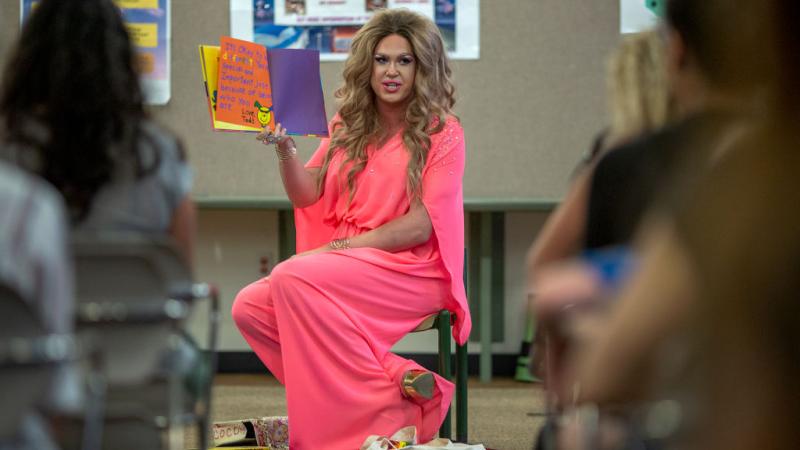Appeals court lets university force students to pay rent for 'cultural centers'
Not viewpoint discrimination or "unbridled discretion," 8th Circuit says of University of Minnesota "lounge space" reserved for groups called "ideologically left." Feminist rebrand of "Women's" center might show school favors ideology, judge says.
Giving minority "cultural centers" their own "exclusive" campus space in perpetuity, funded by mandatory student fees, does not constitute viewpoint discrimination against other student groups or grant "unbridled discretion" to university officials, a federal appeals court has ruled.
It's a major loss for conservative students challenging the allegedly discriminatory disbursement of their money, the subject of frequent litigation going back more than a decade, joining related legal setbacks for conservative student groups alleging discrimination against their events.
The 8th U.S. Circuit Court of Appeals has now ruled twice in favor of the University of Minnesota in litigation alleging viewpoint discrimination against conservative student groups.
It dismissed a lawsuit nearly three years ago stemming from the university's requirement that conservative pundit Ben Shapiro speak in a smaller, less convenient campus venue than the larger, centrally located venue granted to similarly controversial speakers that present security risks, including Rep. Ilhan Omar, D-Minn., and the president of Somalia.
Thursday's ruling against Viewpoint Neutrality Now! is just the next step on the way to the Supreme Court in a lawsuit dating back four years, the group's lawyer Erick Kaardal, special counsel at the Thomas More Society, told Just the News in an email.
Better known for his election integrity litigation, Kaardal's prior victories for students include getting a high school club reinstated after administrators disbanded it for recording a school-approved protest of the American flag on Veterans Day.
The three-judge panel distinguished "status" from "viewpoint" discrimination, but the former is "just as much a violation of the First Amendment" as the latter, Kaardal told Just the News.
Two years ago, SCOTUS unanimously overruled Boston's refusal to let a group fly a "Christian flag" at city hall while allowing other private parties to fly flags in the program, which was a limited public forum "limited to 'status' of non-religious flags flying," Kaardal wrote.
Excluded student groups at the University of Minnesota are "analogous" to the Boston groups banned from flying their flags, he said. The plaintiffs are excited to go to SCOTUS "because we think we are on to something big: prohibiting status discrimination against student groups in universities’ limited public forums."
Two judges, President George W. Bush nominee Bobby Shepherd and President Trump nominee Steven Grasz, were also on the 8th Circuit panel that tossed Young America's Foundation's lawsuit against the university for the Shapiro event.
Shepherd wrote both opinions, and every panel member was appointed by a Republican in both cases. But Grasz, who dissented from part of the Shapiro ruling, wrote a concurrence Thursday warning that "viewpoint discrimination may have been lurking, undeveloped, in the record."
Shepherd's opinion uses harsh words at times for Kaardal's argument and even his grasp of facts on behalf of Viewpoint Neutrality Now! and students Isaac and Evan Smith – who won an early victory in trial court over the outsized role played by one official in making funding decisions and lack of safeguards.
Since a 2013 renovation of the Coffman Memorial Union, funded by student fees, the University of Minnesota has reserved "lounge space" for black, Latino, disabled, feminist, "queer," Asian American, international, American Indian and Muslim cultural centers for students. The Feminist Student Activist Collective was the "Women's" collective until 2015.
While registered student organizations with lounge space must undergo a biennial renewal evaluation, a 2011 process decided which nine RSOs would occupy the space, and the university "does not regularly reevaluate" who should get space, meaning the cultural centers must fail renewal for space to open, the opinion says.
The panel agreed with the district court that the record lacks any evidence that "the allocation of lounge space was motivated by viewpoint discrimination" and that the unbridled-discretion doctrine doesn't apply to the 2011 allocation decision.
The renewal criteria, which Viewpoint Neutrality Now! "does not even mention … in its brief," contradict its claims that the renewal process is "standardless" and gives "nearly limitless discretion" to which RSOs receive space, and the club also falsely claimed the university opens lounge space to applications each year but always chooses the same nine, Shepherd wrote.
The judge cited Kaardal's inability to offer evidence, when "asked twice at oral argument," that the university chose the nine cultural centers for their viewpoints, just arguing that "their continued presence" shows viewpoint discrimination.
The club's complaint is "squarely with the prior [2011] decision," Shepherd said, and "we suspect that a party challenging the renewal process as vesting unbridled discretion into the hands of a government official would articulate in its brief what that process entails."
While it's correct that "the cultural centers engage in expressive activity" through their protests and events, Viewpoint Neutrality Now! hasn't shown evidence "the University chose the cultural centers because of the centers’ positions on particular topics," the opinion says.
Shepherd tacitly scolded the club for portraying the cultural centers as "obviously ideologically from the left," which "necessarily implies that a particular minority group holds a specific viewpoint." Even if that were true, a limited public forum that has an "incidental effect" on some views does not translate into viewpoint discrimination, he wrote.
The judge noted that the club "does not object to the allocation of lounge space to the student government and commuter student RSOs, which hardly bolsters the contention that the process employed by the University was somehow discriminatory with respect to viewpoints."
Judge Grasz's concurrence seized on the university's renewal of the Feminist Student Activist Collective after it dumped "Women's" from its name, which may show it's based around "ideology" rather than the "cultural identity" required for the limited public forum.
That club's own description is heavily ideological, suggesting "a viewpoint the University has favored by granting it a much-coveted, semi-permanent, rent-free office space, to the exclusion of other RSOs and their viewpoints," he wrote, lamenting that Viewpoint Neutrality Now! didn't argue the rebranded group "failed to comport with the forum’s limited purpose."
The panel is not saying "public universities may escape legal scrutiny by cloaking viewpoint discrimination in the guise of a permissible content-based limitation," Grasz wrote. The problem is the club's "failure to identify a genuine dispute of material fact to survive summary judgment."
The Facts Inside Our Reporter's Notebook
Videos
Links
- going back more than a decade
- It dismissed a lawsuit
- larger, centrally located venue granted to similarly controversial speakers
- Thursday's ruling against Viewpoint Neutrality Now!
- lawsuit dating back four years
- his election integrity litigation
- getting a high school club reinstated
- SCOTUS unanimously overruled Boston's refusal
- early victory in trial court














